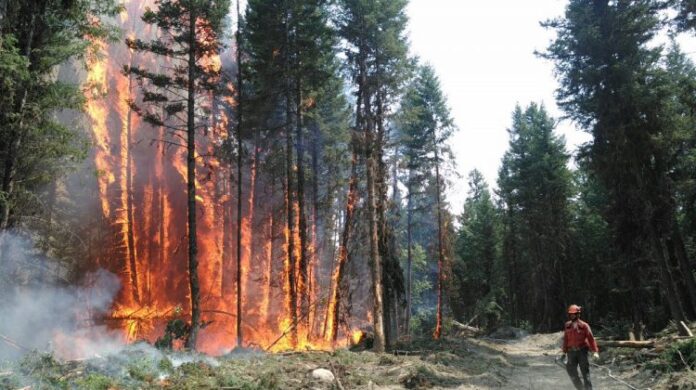Significantly fewer wildfires have been reported in the southeastern part of B.C. so far in 2022, but warmer conditions could bring in an increased risk.
According to officials with the Southeast Fire Centre, 19 wildfires sparked in the region between April 1 and July 18, burning a total of 62 hectares.
At the same time last year, 246 fires ignited in the southeast, burning an area of about 10,000 hectares.
“Our spring, May and especially June, had quite a bit of precipitation with a little bit cooler than average temperature,” said Kim Wright, Southeast Fire Centre information officer. “This resulted in a slower melted snowpack. With more precipitation, of course, it makes us less susceptible to lightning and human-caused sparks.”
Having said that, Wright is warning that warmer and dryer conditions could change the situation.
“We have never had a fire season without fires. We are entering a significant warming and drying trend, so this is the time I’d like to caution people to be prepared,” said Wright. “Protecting your home and your business can be as simple as keeping your gutters clean, mowing your lawn and moving firewood away from your home.”
While standing at the ready for a wildfire to spark, firefighting crews still keep busy, however, even when the province is not experiencing consecutive record-breaking wildfire seasons.
“Our crews are always looking for more certification to increase their experience and training,” said Wright. “That could be anything from helicopter exit training, we have a lot of chainsaw training. Those are just a few.
“We also have crews out doing project work, so they’ll partner with BC Parks and build necessary infrastructure for them,” explained Wright.
Crews with the Southeast Fire Centre have also been sent to help out other jurisdictions.
“I believe we have two unit crews in the Yukon, who are making their way back since the fire situation has changed and they’ve seen a downturn in weather,” said Wright.
“We received a request for two unit crews and two officers to go out to northern Alberta to help out with the wildfires there.”
Wright said despite the lull, it is important to remain prepared in case a fire does spark.
More: FireSmart BC





